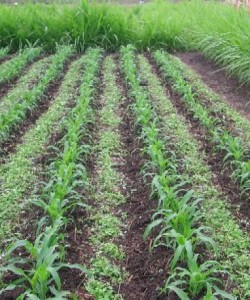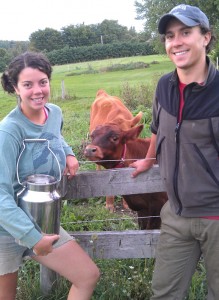By Gemelle Brion
I’m interested in farming practices that use the ecology of the farm to correct resource and pest imbalances. Intercropping is a prime example of such a practice. Practices that rely on on-farm ecology can reduce pesticide use, allow farmers to better understand the interplay of organisms on their farm, and are often more cost effective to the farmer. Continue reading















